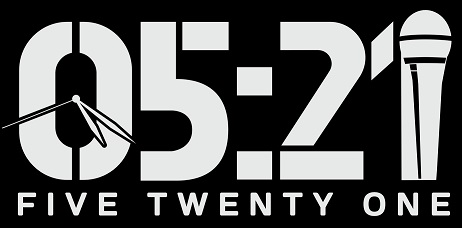Your basket is currently empty!
Lessor vs lessee?: Whats the difference?
A lessor may or may not own the asset which they are leasing to the lessee. “Lessor” refers to the entity allowing another party to use an asset in exchange for something, such as a cash payment. For example, an entity owning a building lessor definition may allow a company the right to use its building for office space. The lessor is the owner of property who contracts with another, the lessee, to allow them to take temporary possession of their property through a lease.
- The lessor typically assesses the potential lessee’s creditworthiness to gauge the risk of default.
- Lessor vs lessee – the arrangement between these two parties is entered into a lease agreement, which is a contractual document signed by both parties.
- The leases must be capitalized and recorded on the balance sheet as ROU assets and lease liabilities.
- Simultaneously, sustainability trends are driving lessors towards green leasing.
There are three main types – independent lessor, captive lessor, and broker lessor. Independent lessors are individuals or businesses that make profit by leasing out their property. Captive lessors are tied to certain retailers or manufacturers and offer specific products, while broker lessors serve as intermediaries between the independent lessor and the lessee. The most common type of lease is for homes or apartments in which individuals and families live.
Impact on Financial Statements
Similarity, the role of a lessee is to use the leased asset for an agreed upon period while making regular payments to the lessor. There are two main parties in a lease agreement, and every finance professional needs to know how to differentiate between the lessor vs lessee. A lease is a contractual arrangement where one party, called the lessor, provides an asset for use by the other party, referred to as the lessee, based on periodic payments for an agreed period. A lessor can engage in various types of leasing arrangements, including operating leases, finance leases, sale and leaseback, and leveraged leases. Each arrangement has different implications regarding asset ownership, risk and reward distribution, and responsibility for maintenance and insurance. “Lessee” refers to the entity paying for the right to use an asset owned by another party The contract allows the lessee use of an asset for an agreed-upon price or amount of consideration.
Lessee vs. Lessor: Differences, Accounting, and More Explained
In property/real estate rentals, the landlord allowing someone to rent their property is the lessor. This article discusses the differences between the lessee and lessor as well as how the new lease accounting standards impact the accounting treatment for each party. For the duration of the lease period, the lessee is responsible for taking care of the asset and conducting regular maintenance as necessary.
Pricing of Lease Agreements
Legal advice may be necessary to navigate the complexities of local and international leasing laws. Use the word comparison feature to learn the differences between similar and commonly confused words.
A lessor is an entity that owns an asset, like a property or a piece of equipment, which it rents out to another entity, known as the lessee. From a financial perspective, the lessor’s main purpose is to earn income through lease payments. This lease agreement not only provides the lessor with a steady stream of revenue over the lease term, but also helps in maintaining the asset’s value by keeping it in productive use. A landlord refers specifically to a lessor of real property like land, buildings, or an apartment. In contrast, a lessor can lease out any kind of asset – including vehicles, equipment, or intellectual property.
Learn more with
The caveat is that the term only applies to residential rental agreements, where a renter is either a landlord or a tenant. The nouns lessor and lessee represent two principal parties of a legally binding contract called a “lease agreement.” A lessor owns something of value, while the lessee pays to use their asset. A lessor is a person or entity that owns something of value and allows people to use their property through a lease agreement. This type of agreement is implemented https://turbo-tax.org/ based on the understanding that the seller will immediately lease back the asset from the buyer, subject to an agreed payment rate and period of payment. The buyer in this type of transaction may be a leasing company, finance company, insurance company, individual investor, or institutional investor. A sale and leaseback is a type of agreement where one party purchases an asset or property from another party, and immediately leases it to the selling party.
Before making any decision or taking any action, you should consult with professional advisors. Lessor’s risk only (LRO) insurance protects commercial landlords against lawsuits. This applies to property damage or any bodily injuries a tenant sustains on the commercial property. Also known as landlord insurance, it covers commercial property such as apartment complexes or office spaces.
The lessor in a lease agreement is the person or legal entity who grants a lease to an individual or family, often a lease on a property. A lessor is a person or legal entity that owns a property and rents it out to a lessee, who in term pays the lessor to live in their property. As such, a lessor is the owner of an asset that is leased under an agreement to a lessee. The lessee makes a one-time payment or a series of periodic payments to the lessor in return for the use of the asset.
A rent-to-own lease allows a lessee’s weekly or monthly payments to accrue toward the purchase of a tangible asset. Unlike traditional leases, a rent-to-own lessee can end the lease contract by purchasing the asset in full or returning it to the owner. Accounting has changed to a single-model approach for government entity lessees and lessors under GASB 87. Lessees must recognize a lease liability and related lease asset at the lease commencement date, or the transition date to GASB 87.
These emerging trends present a landscape of opportunities and challenges for lessors, underscoring the importance of continuous adaptation in this dynamic sector. This involves the lessor buying an asset from a company and leasing it back to them. This allows the original owner to free up capital while retaining the use of the asset. In many jurisdictions, lessors can claim tax benefits such as depreciation and interest deductions.
In an operating lease, the lessor retains the asset’s ownership and usually takes responsibility for maintenance and insurance. The purpose of a lessor is to earn a return on their asset through leasing, providing a steady income stream. The role of a lessor impacts readers, especially in the realms of real estate and business, as understanding this term is vital for any leasing agreements.


